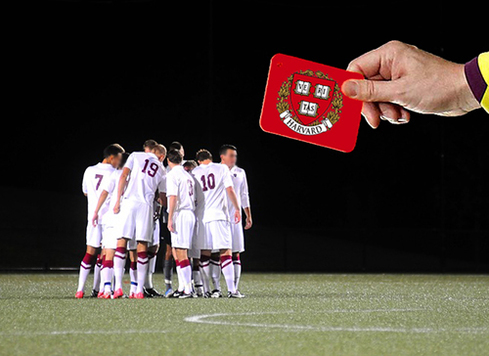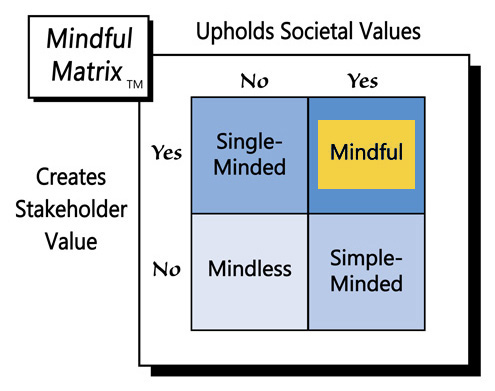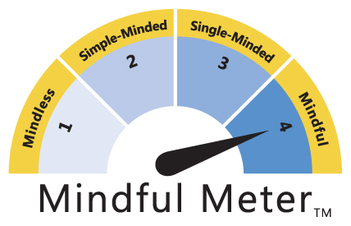The Harvard Crimson revealed that the University’s men’s soccer team had taken “locker room talk” to a whole new level. After reviewing pictures of incoming athletes for the school’s women’s soccer program, members of the men’s team rated their female counterparts “on a sexual appeal scale of 1 to 10, including explicit descriptions of their physical traits and musings about the women’s preferred sexual positions.”
What made matters even worse was that an investigation by Harvard’s general counsel confirmed that the lewd evaluations were not just a one-time, insidious lapse in judgment. Rather, the sexually-charged assessments had been happening since 2012 and evolved into what some have called an annual “scouting report,” published in a Google document and made publicly searchable.
In response to these revelations, Harvard has issued itself a ‘red card.’ The University has cancelled midstream the remainder of the men’s soccer schedule. At this point in the season the cancellation means the forfeiture of just two regular season games; however, the self-assessed penalty is more painful given that the team seemed poised to win the Ivy League conference and gain entry into the N.C.A.A. tournament.
Some may wonder whether Harvard has come down too hard on these hormone-driven young men: ‘Boys will be boys,’ so shouldn’t they be given some grace, not penalized for adolescent acts? Yes, many young men are obsessed with the opposite sex, but even that personal preoccupation is different than developing and publishing a comprehensive rating system, particularly one based entirely on physical appearance and perverted sexual appeal. The only things worse would be to involve multiple team members in the process, to target a particular group of women, and to repeat the irreverence year after year, which is what the Harvard men’s soccer players did.
Phyllis Thompson, lecturer in women, gender, and sexuality studies at Harvard wrote a poignant piece about the scandal, which appeared in The New Yorker. In the article, Thompson detailed the events leading to the soccer season’s cancellation, but more importantly she provided critical context for understanding the significant negative impact such vulgar sexism has on women at Harvard and elsewhere.
For instance, Thompson cited a 2015 survey by the Association of American Universities, which found that “29.2 percent of female Harvard seniors reported that they had experienced nonconsensual penetration or sexual touching since arriving at college.” Also, in the same survey “72.7 percent of all undergraduates reported that they had been sexually harassed.” According to Thompson, these Harvard statistics were typical of those of other schools that participated in the survey. Nationally, “One in 5 women and one in 16 men are sexually assaulted while in college.”
These and similar sobering statistics about sexual violence on college campuses suggest that the sexual environments of many universities are already volatile. The last thing any school should want, therefore, is activity that perpetuates objectification and encourages unhealthy sexual interaction. The actions of the Harvard men’s soccer players did both of those things. The University was wise, therefore, to take drastic action against the very callous conduct.
However, how does a topic like this one fit within the focus of this Mindful Matters blog? What does the lewd behavior and Harvard’s response have to do with marketing? The key connection is Harvard’s brand.
To test this premise, what words and phrases come to mind when you think of Harvard? A few possibilities might be intelligence, prestige, high quality, and rigor. Harvard also likely hopes that people associate it with integrity, fairness, and respect. The iconic Harvard shield contains the Latin motto “VERITAS,” meaning “verity,” or “truth,” which in a broad sense encompasses all of these virtues.
Members of the Harvard men’s soccer team publicly compromised this esteemed identity and these lauded values. Consequently, the University had to issue a strong countervailing message that what those individuals did does not represent Harvard. In doing so, Harvard was protecting not just the reputation of a 375-year+ undergraduate school, but of every entity that shares the family brand, e.g., Harvard Business Review, Harvard Law, Harvard Medical School, etc.
Cancelling a major collegiate sport mid-season is something that many would not readily consider marketing, let alone a wise strategic move. Harvard, however, had very good reasons for suspending its men’s soccer program, mainly to support and protect its female students, but also to shield its venerated brand. Yes, the school will experience some short-term loss, but in the long run the University will increase stakeholder value even as it upholds important societal values. In the end, Harvard earns an ‘A’ for “Mindful Marketing.”
Learn more about the Mindful Matrix and Mindful Meter.
Check out Mindful Marketing Ads and Vote your Mind!




 RSS Feed
RSS Feed